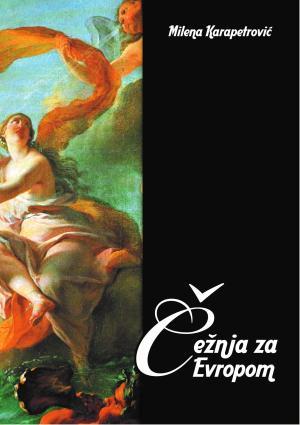Longing for Europe (Philosophical foundations of the idea of Europe and European identity)
Synopsis
In this book, the idea of Europe and the European identity/s are seen primarily through the philosophical thinking influential in the second half of the 20th century. It was during this period, both in political theory and in practice, that the idea and realization of the project of creating a unified Europe, which was reborn after two world wars and faced the challenges of modernization, technological development and globalization, took shape.
In the first chapter, the methodological framework of this research is presented, which is mostly built from the conceptions of philosophers of (post)structuralism and postmodernism, who reject universal truths, criticize metanarrative and find a new approach in deconstruction, because they believe that the world we live in no longer suits the boundless faith in the rational and the power of the subject. To talk about poststructuralism/postmodern does not mean to stay only within the presentation of the philosophical direction, but also to present the main characteristics of the time of postmodernity.
The second chapter provides an insight into the image of Europe, i.e. its very origin, and the way we see and describe it today. The beginning is contained in the myth and in its various interpretations, which show how Europe was perceived at a time when it did not represent a single space, nor was there an awareness of Europeanness. Throughout the history of philosophy, we can follow the development of the idea of the relationship between the individual and the community, which will represent one of the main elements of the foundations of modern (European) democratic societies and states.
In the third chapter, it is shown what it is that Europe reflects in order to try to find its own identity and/or identities. There is, above all, the question of the relationship between faith/religion and mind/science, without at least a partial disentanglement of which we cannot return to modern theory. At the same time, it is necessary to encounter what characterizes contemporary thought and reality. To get to know the other, whether close or far, means changing yesterday's European through new knowledge, as indicated by feminist, postcolonial, cultural theories.
In the fourth chapter, it is shown how "the (European) spirit is exercised" in the form of postmodernism, when the ontological meets and collides with the ethical, philosophical-political, and existential. We remain on the ground of uncertainty in the attempt to define post-modernity, as well as the idea and identity of Europe, and it seems that even greater uncertainty is shown in the realized reality. Modern and contemporary Europe as a stage of development, growth and change of nation-states, determination of nationalism and nationalism is an indispensable topic in this section, as well as the issue of multiculturalism and cosmopolitanism.
Downloads

Downloads
Published
Categories
License

This work is licensed under a Creative Commons Attribution-NonCommercial-NoDerivatives 4.0 International License.


